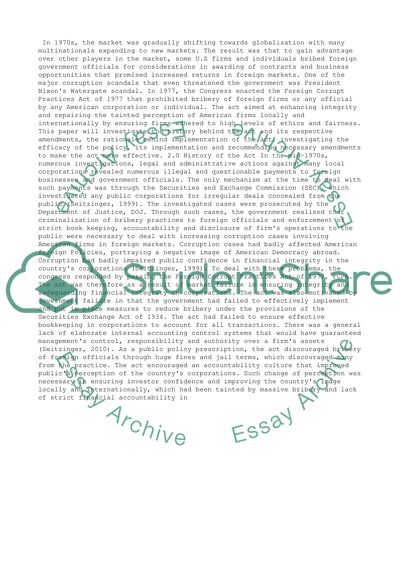Cite this document
(“Evaluating the Foreign Corrupt Practices Act (FCPA) 15 USC 78dd1 - of Essay”, n.d.)
Retrieved de https://studentshare.org/business/1481952-evaluating-the-foreign-corrupt-practices-act-fcpa-15-usc-78dd1-of-1977
Retrieved de https://studentshare.org/business/1481952-evaluating-the-foreign-corrupt-practices-act-fcpa-15-usc-78dd1-of-1977
(Evaluating the Foreign Corrupt Practices Act (FCPA) 15 USC 78dd1 - of Essay)
https://studentshare.org/business/1481952-evaluating-the-foreign-corrupt-practices-act-fcpa-15-usc-78dd1-of-1977.
https://studentshare.org/business/1481952-evaluating-the-foreign-corrupt-practices-act-fcpa-15-usc-78dd1-of-1977.
“Evaluating the Foreign Corrupt Practices Act (FCPA) 15 USC 78dd1 - of Essay”, n.d. https://studentshare.org/business/1481952-evaluating-the-foreign-corrupt-practices-act-fcpa-15-usc-78dd1-of-1977.


